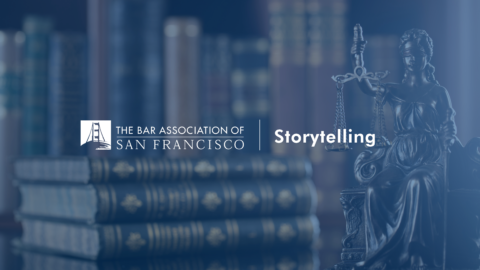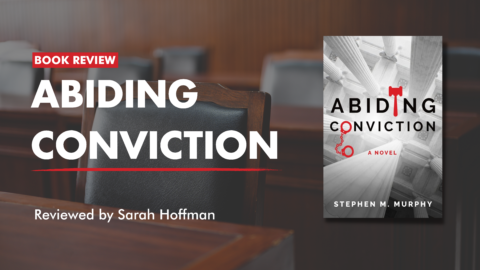The Impact of Hope discussion room consisted of hearing observations around national social justice issues as well as providing reasons to have optimism that the landscape is improving. The communities that JDC serves are the most powerless in our country, and what panelists refer to as “imperfect clients,” people who have been suppressed, mishandled, and traumatized. The panelists’ work seeks justice by ensuring the integrity of the systems and processes that supposedly exist to benefit everyone but don’t always.
Gaurav Bali is a JDC Attorney who specializes in domestic violence cases. The focus of his work with survivors is navigating the often complicated family court system, obtaining restraining orders, and full-scope representation in divorce cases. The common denominator in his work is that all of his clients have dealt with some combination of physical, emotional, or sexual abuse, and the pandemic has only exacerbated the problems that survivors face daily. Bali, however, remains hopeful.
“At my level, the impact of the JDC’s work gives my clients and their families immediate peace in their daily life, one family at a time. We are helping a generation of young children avoid this infinite loop of violence witnessed in their own home by taking out the root of the problem, abusers.” He drew from the encouraging words of Dr. Martin Luther King and Maya Angelou, saying that there is always something better on the horizon.
Bao Tran Dang is the Supervising Attorney of Eviction Defense Services with JDC’s Homeless Advocacy Project. They believe in the holistic approach, focusing on eviction prevention, disability benefits advocacy, and immigration issues. Their team provides full-scope legal representation to tenants in San Francisco who are facing eviction, with a focus on clients or have mental or physical disabilities.
Dang explained how under Prop F, more tenants were able to receive full-scope representation. Before Prop F existed, HAP was one of the few organizations in the city that provided full-scope representation to tenants because they recognized the effect that meaningful representation has on the outcome of a case.
“Prop F has increased full scope representation from 30% to nearly 67% of all eviction cases that are filed,” Dang said. Without their work, Dang expressed the reality that we would have continued to see only 30%, if not less, of San Francisco tenants receiving representation in their eviction cases. “Each day is a test of commitment and the belief that we are effecting change, even if it can’t immediately be seen.”
Abby Herzberg is with JDC’s Federal Pro Bono Project. As the Supervising Attorney, she advises and informs unrepresented litigants through lawsuits, civil rights violations against law enforcement, and correctional officers. Many of their cases involve claims of constitutional violations by law enforcement or prison officials, lawsuits against police officers, sheriff’s deputies, correctional officers, and prison medical staff. They see claims of false arrest, unlawful search, excessive force, and denied medical care for prisoners. In a discussion about hope, Herzberg wants to acknowledge these are heavy topics and disproportionately impact communities of color. Where she finds hope is with justice.
”I find hope in the people who have the courage to challenge constitutional violations… In a system that puts up barrier after barrier, I find hope with the individuals who persist.” Herzberg also consistently finds hope in the pro bono volunteer attorneys who use their power to vindicate the rights of the people harmed by police and prison violence.
Jule Traun, BASF’s Director of Court Programs and founding member of the Criminal Justice Task Force, discussed what she and others are doing to work with the criminal justice system on the front end to prevent civil rights violations from happening. The Bar Association convened a task force composed of prosecutors, defense attorneys, civil rights attorneys, law professors, the judiciary, and members of law enforcement. Traun explained “this task force has met continuously every month since 2015. They roll up their sleeves to identify and form subcommittees to undertake the most complex issues facing law enforcement and the justice system.”
They’ve researched a wide array of best practices throughout the country, developing expertise on use of force, data collection and analysis, implicit bias in policing, police oversight and access to police personnel records, the pros, and cons of tase use, crisis intervention training, the use of body-worn cameras, pretrial release and bail, the role of police unions, qualified immunity for police officers and the eroding diversity of jury pools. Traun is immensely proud of the work the team has achieved so far, and finds hope in that we are setting an example for all to follow: we have presented to other bar associations and shared how we do this, encouraging them to do the same.
“The continuing discussion of these important issues puts the Bar Association of San Francisco at the forefront of cutting-edge discussions that are redefining what civil rights are for this country,” said Paul Henderson, Executive Director, Department of Police Accountability. “In today’s age, given the complexity of where we are coming from in the last administration, where we’ve actually seen civil rights rollback.”




